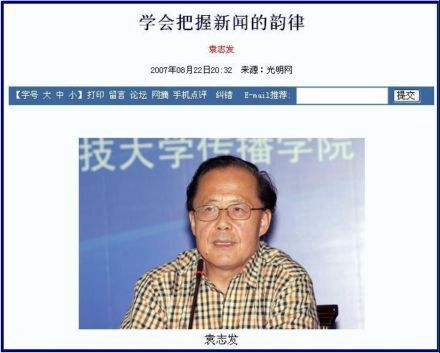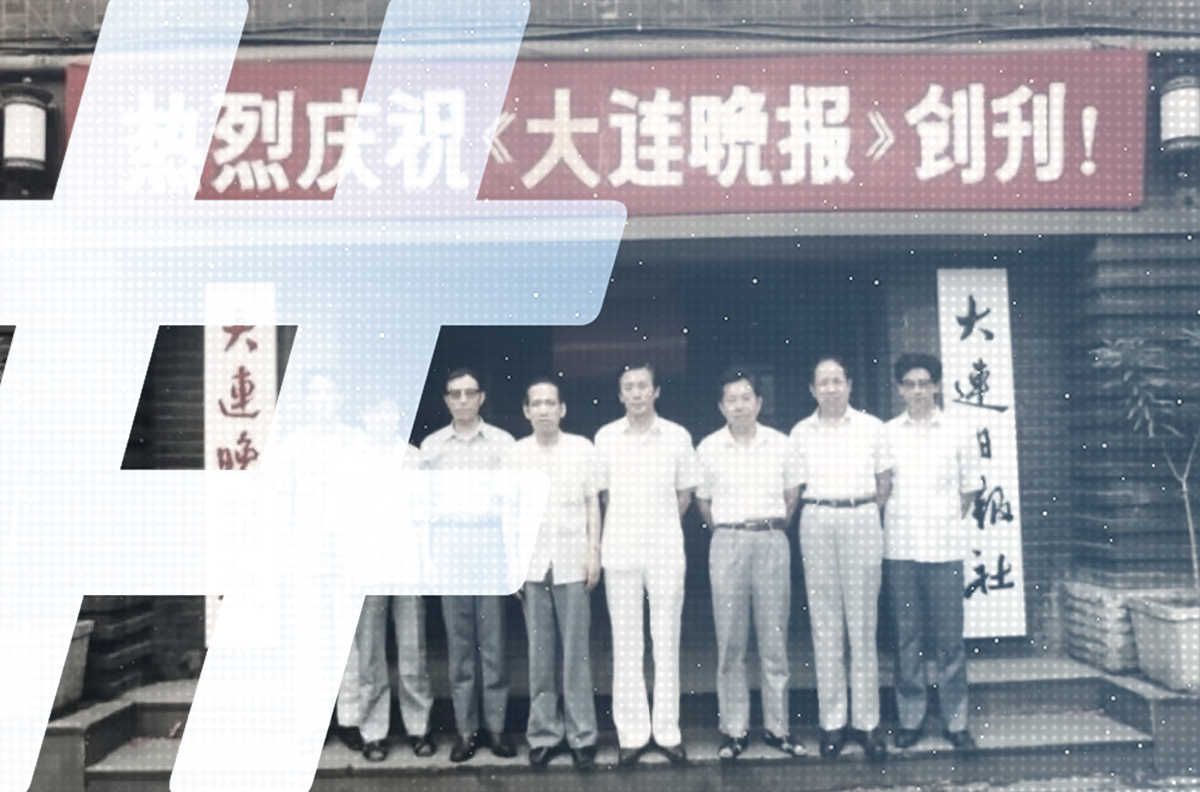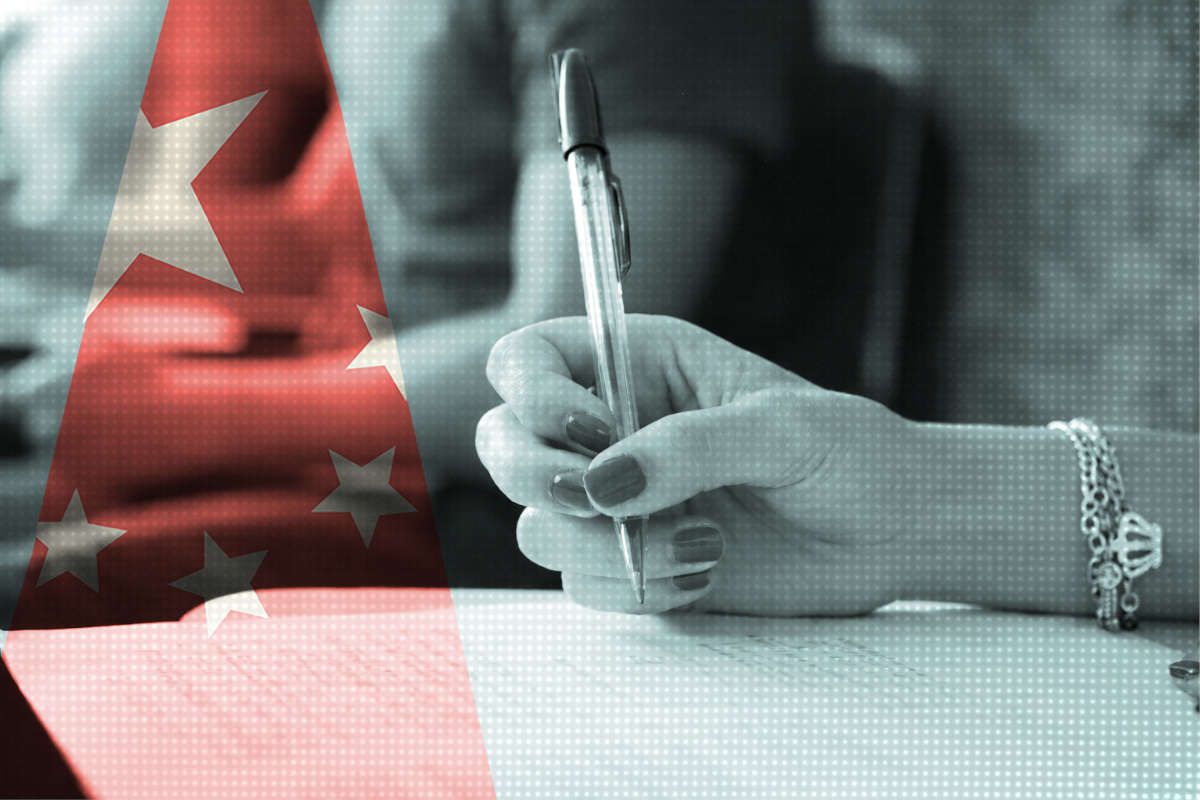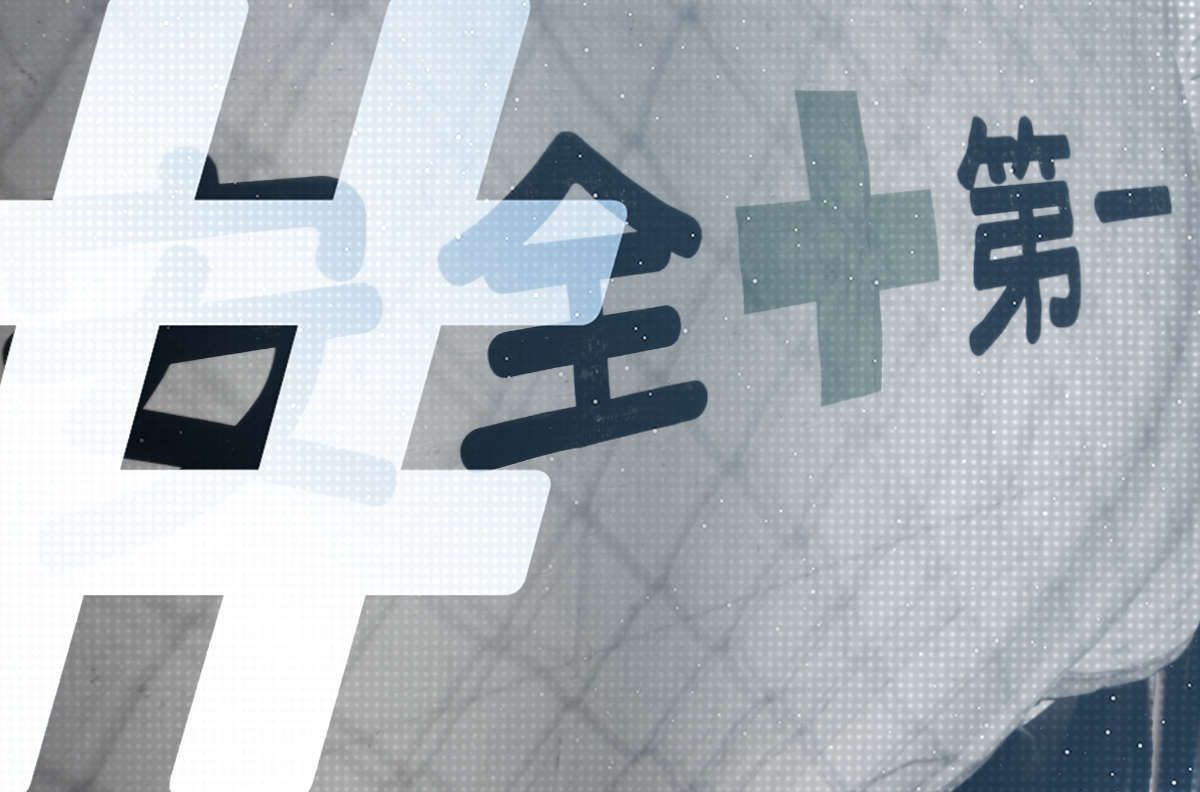Headlines and Hashtags
Chinese leaders meditate loudly on the philosophy of censorship as 17th Congress nears
China generally avoids making a public display of its media control ideology and tactics, which have scant popular support. As the 17th National Congress nears, however, party leaders are cranking up the volume and urging media not to forget their duty to public opinion guidance (舆论导向). [Below: Screenshot of leftist media educator and former propaganda official Yuan Zhifa at people.com.cn].

One of the most notable examples to appear in recent weeks was a speech, disseminated on August 22 through the Central Propaganda Department’s Guangming Daily and a number of major Websites, by Yuan Zhifa (袁志发), a former Guangming Daily editor with a long resume of propaganda postings.
Yuan, who is now – for lack of a better phrase – a journalism educator, talks about how journalists in China can gain a better grasp of “cadence” (韵律). This is essentially the “art” of knowing what can be reported (from the party’s standpoint, naturally) and how.
“The things of the world must have cadence,” Yuan begins philosophically:
As a form of ideology, news must have its own cadence. Cadence is an expression of the basic attributes of things. I’ve learned that only by grasping the cadence of news can we effectively unite the value orientations of news with its inherent rules and in this way step into the harmonious realm of news propaganda. So I’d like to talk a bit about my knowledge and understanding of ‘news cadence’ (新闻韵律).
The heart of “cadence,” as Yuan goes on to explain, is “correct guidance of public opinion” (正确舆论导向), which this self-proclaimed “old soldier” of propaganda seems to hold as an article of faith.
When people ask me what is the most profound thing I’ve taken away from my decades of work in news, I answer swiftly and with conviction: ‘The most critical thing, where news is concerned, is to uphold correct guidance of public opinion.’
What follows could be called the creation myth of contemporary Chinese media control — the chaos of the late 1980s and its lessons for China:
In this respect, there are two events I will never forget, and which are most stirring. The first is the political storm that swept our country in 1989. The second is disintegration of the Soviet Union and dramatic change in Eastern Europe … It was in just such a climate that some people in the press neglected the instructions of the party, doing whatever they pleased and leading to the perpetration of errors of guidance by some media.
There are many reasons and circumstances behind the disintegration of the Soviet Union, but it must be said that incorrect guidance of opinion is one important reason. After Gorbachev came to power, one rather salient point emphasized in opinion propaganda (舆论宣传) was “openness” (公开性). Anything could be made public, and anything could be said in the media. Stalin was soon gainsaid, and eventually so too was Lenin. Before long, the history of the Soviet Union’s Communist Party was gainsaid. The result was that communist party leaders across the Soviet Union were discredited. As the party was denied, the people lost their backbone, ideological chaos ensued, the hearts of people were scattered, the country disintegrated, everything ended.
The essential point Yuan hopes we take away from this brief historical analysis is tiresomely familiar to journalists across China:
Guidance of public opinion is the lifeblood of news propaganda. Correct guidance of public opinion means the prosperity of the party and the people, while incorrect guidance spells disaster for both. The question of correct and incorrect guidance concerns the fate of the party and the country.
And the “news workers” said: “Amen!”
Further testifying to the surge in use of the term “guidance of public opinion” as the congress approaches, the following graph plots “guidance” over the last eight months in more than 300 newspapers (via the WiseNews database):
[Posted by David Bandurski, August 30, 2007, 11:25am]




















